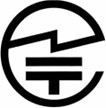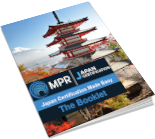Schnell und sicher zum Zertifizierungserfolg!
What is TELEC Certification for Radios for Japan?
TELEC certification (also known as MIC certification or Japanese Radio Law Approval) is a mandatory product approval for radios in Japan. It ensures compliance with the Japanese Radio Law and the Telecommunications Business Law. Unlike PSE certification, which is also mandatory, or voluntary VCCI certification, it is limited to intended radiation emissions.
TELEC certification ensures that domestically and foreign-produced radios meet Japan’s technical standards and do not interfere with or interfere with radio signals. The Telecom Engineering Center (TELEC) or the Ministry of Internal Affairs and Communications (MIC) is responsible for certification.
As part of the growing range of products with various telecommunications and radio technologies, Japan introduced TELEC certification as a basic requirement for market access in Japan in 1978. The frequencies covered have been continuously expanded and now include various bands between 9 kHz and 300 GHz.
Products that are subject to the TELEC certification requirement may not be imported into Japan without appropriate approval. This is strictly checked by Japanese customs. If products subject to approval are nevertheless imported or operated without TELEC certification, there is a risk of product recalls and penalties for the corresponding manufacturers. The testing of products for TELEC certification is therefore very important and must be completed before export.
Under certain circumstances, products may also require mandatory PSE certification and/or JATE certification in addition to TELEC approval .
Which products require TELEC certification?
The TELEC certification covers various product categories and frequency bands, including:
- Products with WLAN or Bluetooth, e.g. WLAN routers, Bluetooth headphones, mobile devices, …
- Products with RFID (LF, HF, UHF): credit card readers, check-in stations, labeling systems, …
- Products with LTE: smartphones, laptops, dash cams, …
- Products approved with other radio frequencies: drones, radar systems, industrial applications, …
- Wireless modules and chips
TELEC Certification Process
The TELEC certification process begins with an application, which usually includes two separate components for the test laboratory and for the certification authority. The first part of the application must be sent to a TELEC-accredited test laboratory, where the next step is to test the product according to Japanese standards. After successfully passing these tests, a test report is drawn up, which serves as the basis for the second application to TEREC. After a thorough examination, TELEC then issues the corresponding certificate. In the final step, the company is then responsible for ensuring the correct labeling of the certified products.
Application Preparation
Submission & Application Review at the Test Laboratory
Product Tests in TELEC-accredited Test Laboratories
Submission & Application Review at the Authority
Issuing Certificates and Marking
For the TELEC approval of a final product, companies can already use radio chips or modules pre-certified according to TELEC in their products in order to facilitate or even circumvent the certification process. If all such components have already been tested and approved according to Japanese standards, it may not even be necessary to re-evaluate the end product according to TELEC. However, this must always be verified on a case-by-case basis. Nevertheless, manufacturers of products with pre-certified radio chips or modules must ensure their compatibility with the structure and design of the product, as well as other labeling regulations to ensure compliance with TELEC regulations.
TELEC Certification Overview

After the TELEC approval has been successfully completed, the so-called GITEKI logo and certificate number must be affixed to the product for most product categories.
The size of the logo may be variably adapted to the product in question, but good legibility must always be guaranteed. This also applies to the choice of the type of marking. The color design of the logo is irrelevant.
MPR Services
Your One-Stop Certification Solution.
Our complete package for product certifications for Japan.
Clarification of the certification requirements
Personal consultant for all questions about PSE
Application preparation and communication with the authorities
Preparation and support for the audit
Organization of testing
Advice on how to mark your products, if needed
Complete organization of any follow-up certifications
Contact Us!
 MPR Japan Certification – expert consulting and implementation of certification projects worldwide.
MPR Japan Certification – expert consulting and implementation of certification projects worldwide.
TELEC Certification Overview
| TELEC Certification | |
| Certification Duration | 3-4 months (assuming that all required documents are already available) |
| Marking | Yes |
| Tests required? | Yes, in accredited laboratories |
| Factory audit required? | No |
| Follow-Up Process | Not applicable |
TELEC FAQ
The process takes about 3-4 months, excluding the provision of external documents by you or, if necessary, your suppliers. For the product tests, 1.5-2 months should be planned, depending on how much coordination with the test laboratory is necessary for the respective product.
With the exception of a few devices, the use of a radio without certification and marking is a violation of the Radio Act. In addition, for some radio equipment (e.g. amateur radio), an additional license from the MIC is required, even if there is an existing marking. Using a radio in Japan without a license is a violation of the law and can be punished with a fine or, in the worst case, even imprisonment.
No, the information is provided in English only rarely and with a delay by the TELEC or MIC – most announcements are made exclusively in Japanese. Applicants must independently track changes in regulations or hire a consulting firm to monitor changes so that they are reliably aware of changes that affect the compliance of their products.
Unlike many other certifications, there are a number of test laboratories around the world that have permission to issue test reports that can then be used to apply for TELEC certification.
However, despite being accredited, many test laboratories have an inadequate understanding of the regulations and requirements for certification itself, so choosing the wrong test laboratory can lead to significant additional costs and delays.
Subsequent changes to products that have already been certified can affect the validity of the certificate. In the case of serious modifications affecting the radio characteristics, the conformity certification automatically expires and the equipment must be treated as an unmarked radio. However, minor hardware or software changes are usually insignificant. However, this must be examined individually for each case.
TELEC Certification Video
Please enable cookies to enable embedded YouTube videos. For privacy-related details on data exchange through use of the videos as well as changeable cookie settings, please see the privacy policy page.
You are currently viewing a placeholder content from Default. To access the actual content, click the button below. Please note that doing so will share data with third-party providers.
More Information






